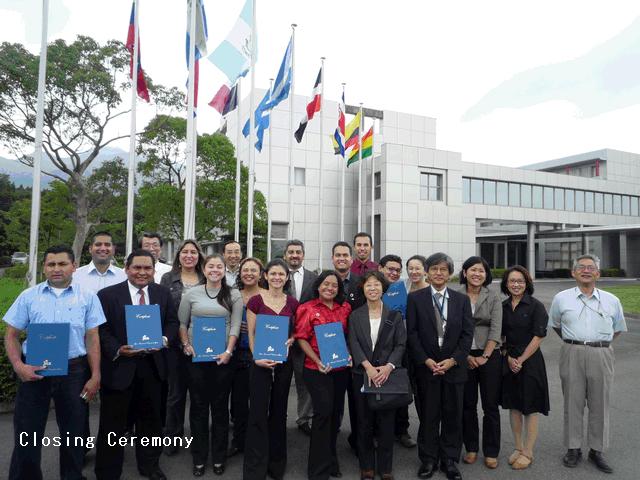Home > Workshop and Training > IN JAPAN > Fiscal Year 2009 > Waste Management For Promoting Recycling-Oriented Societies in Central and South America
Main content starts here.
Update:July 15, 2009
Waste Management For Promoting Recycling-Oriented Societies in Central and South America
In Central and South American countries, environmental pollution has become a big issue. It arises from various urban problems due to excessive population concentration in capital cities, particularly those mainly caused by municipal waste. Training was held in this subject for administrators who are in charge of waste treatment on a daily basis in the environmental administration section in local and central governments of Central and South American countries. It continued for 41 days, from May 24 to July 3, 2009, focusing on building a recycling-based society and soft aspects of environmental education by promoting 3R (reduce, reuse and recycle) in addition to efficient waste treatment technology in Japan. The purpose of the training was to develop human resources dealing with administration in Central and South American countries by putting forward new viewpoints. These included development and utilization of new energy through waste treatment and establishment of a feasible system to cope with various problems of municipal waste in Central and South America, while promoting enlightenment of environment awareness at source, such as general households and offices.
The themes of the curriculum included 1) Industrial waste management system in Japan, 2) Method of 3R toward recycling-based society, 3) Waste treatment technology in industries and implementation of 3R and 4) Environment awareness enlightenment. Through the lectures, inspection tours and discussions, the training participants organized the problems in their countries, and acquired knowledge of improvement plans. They then reviewed and analyzed their training purposes as a summary of the training, and designed their action plans for after returning home and made presentations.
In the training course, the training participants took turns to say a word of thanks and make presents of some art pieces from their home countries at the end of each lecture / inspection tour, to establish a good rapport with the lecturers. The training participants always showed respect and gratitude to the lecturers, receiving high praise for their intense attitude. Their eager questions often met scrupulous treatment by the lecturers who returned answers at a later date due to the constraints of time.
They participated in river cleaning activity on a holiday. They had never done weeding using a sickle, and they all enjoyed it with interest under the glaring sun. They were interviewed by the local TV station, and also received words of praise for being the hardest workers among all participants by the organizer.
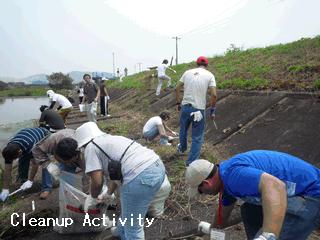
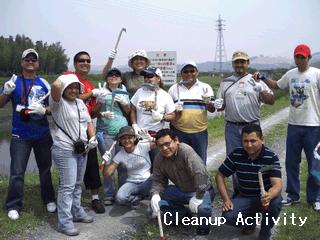
Also they experienced tea ceremony and exchanged friendship with training participants of other courses with barbecue, etc, on holidays. They had a chance to experience the culture and history of Japan. They visited Kinkaku-ji Temple and Kiyomizu-dera Temple in Kyoto and also Nagoya castle. They tried on yukata at the hotel where they stayed.
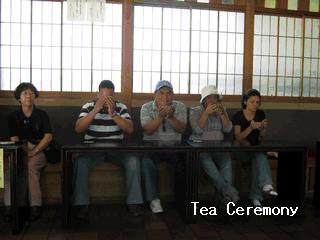
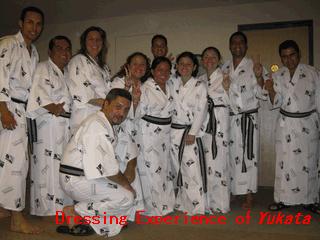
They had Japanese language training five times during their stay. They were all greatly interested, and some made a request for more language training.
We appreciate the kind cooperation of those who were involved at the height of a nationwide alert regarding the new strain of influenza, and we are grateful we could conclude the training safely.
